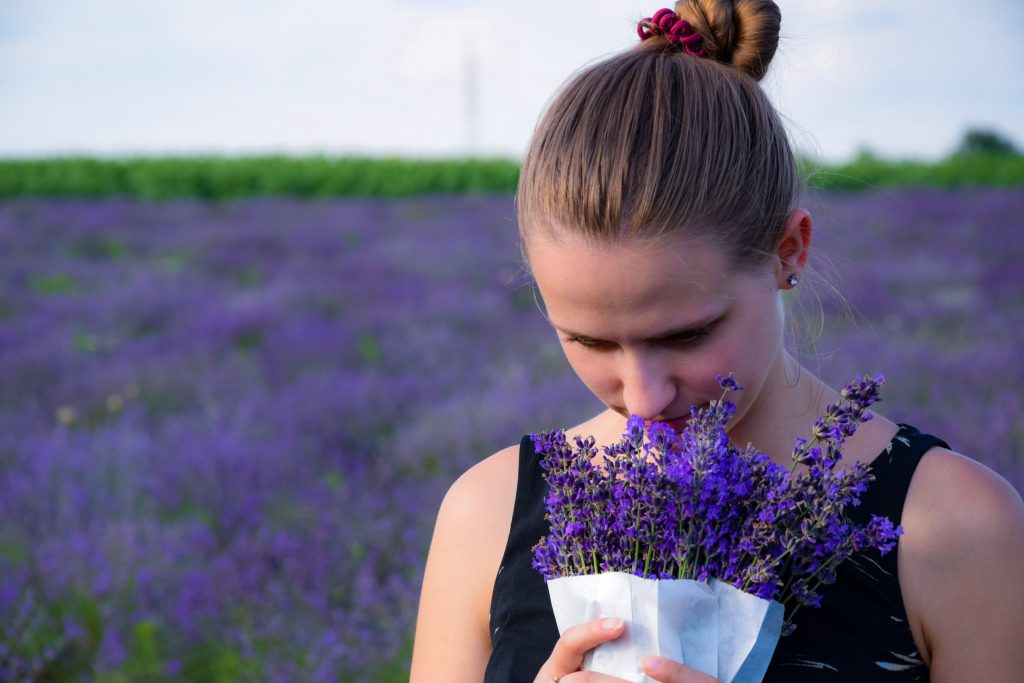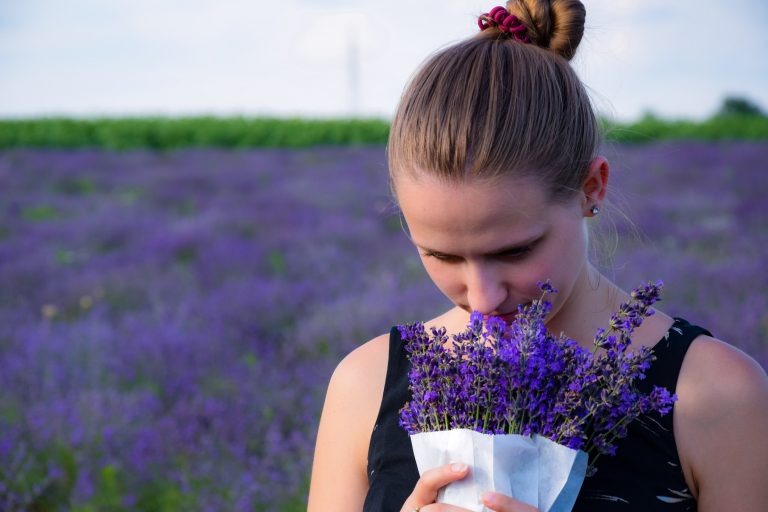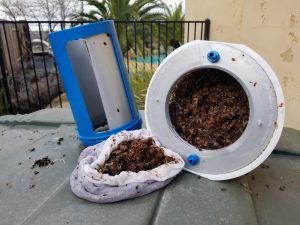
Chances are slim you had any idea what Anosmia Awareness Day was about last February 27th. This year, Covid-19 shines a spotlight on its hallmark presenting symptom that renders the Smell-O-Vision useless. 2021 Anosmia Awareness Day just hits different.
I watched, eyes wide, as my spice-sensitive husband shoveled chipfuls of salsa surely forged from the fires of Hell.
“What … what is happening? How are you doing that?!” I asked, rapidly huffing, wanting to slap my tongue free of the clutches of such heat. I’d had the tiniest nibble.
“What? Is it spicy? I can’t even taste it.”
“At ALL? You can’t taste ANY spice?!”
“Nope.”
—
We were at Bonez Mexican restaurant in Crested Butte, Colorado, where we had escaped for a mountain weekend of kid-free us time, eight-foot walls of snow outside the cabin door, and, ironically, great food with flavor and heat that might surpass our toddlers’ chicken nugget standard.
Andy had come down with what the doctor said was a nasty sinus and double-ear infection. Antibiotics seemed to help. But the complete absence of smell and taste was beyond the abilities of a stuffy nose.
This was last January, so no test could either confirm nor deny what led to my husband’s brush with anosmia. But in the weeks ahead in the US, this largely unknown condition would make a name for itself in a way no one saw coming.
Anosmia: The Child Star of Disability
It’s not every day a condition sees a rise to fame so steep.
In late 2019, the media whispered of a mysterious new virus that wipes out its host’s sense of smell entirely.
Turns out Covid thinks just like Harry and Marv, Home Alone’s “Wet Bandits” who plug the sinks of the houses they rob with towels, and turn on the faucets to flood the place. Their calling card eventually helps the police link them to every house they hit.
Anosmia, for better or worse, has aided doctors and researchers in the same way in determining who’s been hit by Covid. You had cold-like symptoms, a headache, and—what’s that? You can’t smell or taste anything? Covid’s been here. Book ‘em, Danno.
In the months following its connection to Covid, “anosmia” gained speed, entering our collective consciousness faster than Justin Bieber when he hit 13.
If you still don’t know it by its official name, you know it by definition: anosmia, aka “smell blindness,” is the “loss of the ability to detect one or more smells.”
While it has our attention, let’s take a look at this oft-made-light-of condition that has serious and sometimes dangerous implications for those who have it.
What Is Anosmia?
The chances you know an anosmiac are high, whether you (or they) know it or not. About 3% of adults over 40 experience anosmia in the United States alone, and around 86% of those with Covid experience anosmia to some degree.
Anosmia’s effect on quality of life ranges from the amusing (accidentally cooking up a dish to 500-alarm spice), to the dangerous (eating spoiled food, or not detecting smoke or a gas leak), to a high taxation on mental and emotional health.
Anosmia-related emotional suffering and depression can result from:
- Feelings of fear for one’s safety
- Inability to assess personal hygiene with a traditional “sniff test” and resultant self-consciousness or embarrassment.
- Loss of nostalgia through smell; scent is strongly tied to our experiences and memories.
- Loss of pleasure through smell. Olfactory function plays a large role in sexual partnerships.
- Career-limiting barriers. I learned of one woman who, as a medical technician, could not work in some subspecialties where certain lab cultures have distinct smells used to identify or diagnose.
Anosmia can occur abruptly, due to illness or injury, or it can come on slowly, worsening over time. The loss of sense of smell can be specific to a particular scent (known as “specific anosmia”) or total, and may be temporary or permanent.
It is often used interchangeably with the related but different hyposmia: a decrease in sensitivity to some or all smells.
Meet An Anosmiac: Nicole’s Story
The values we place on our sense of smell range from zilch to acutely grievous.
My husband, for instance, would barely bat an eye to lose his sense of smell, which is already diminished. Whereas I once wrote a 15-page research paper on the significance of olfactory function as it pertains to brain chemistry, memory, and mental health. What?
But the level of criticality my husband or I assign to being able to smell stuff isn’t relevant here. An anosmiac’s story is. I spoke with Nicole Rice to learn what life might be like sans sniff test.
Nicole was 13 when she lost all sense of smell after a particularly horrendous sinus infection. She didn’t even realize it until six months after her illness when her mother, having smelled the unmistakable scent of rancid deli meat from another room in the house, found Nicole about to chow down on a sandwich she was making in the kitchen.
In her 20 years living without a sense of smell, Nicole, now 33, said she nearly burned down her house more than once, was sometimes assigned to deal with particularly offensive bathroom situations at work, and learned how to reduce some of the risks associated with anosmia. Perishable food was marked and dated with Sharpie; a higher-than-standard number of monitors readily detected smoke or leaking gas where her nose could not.
I was surprised to learn Nicole had never heard the term “anosmia” until its streak to stardom last year via Covid. She said her anosmia didn’t have as detrimental an effect on her mental health as it can for some, noting that its onset in her younger years may have helped her quickly adapt and accept her new normal.
In a bizarre but serendipitous twist of fate, last year as more people than ever before in our known history experienced anosmia for themselves, Nicole’s sense of smell managed to sneak back in.
She had begun to occasionally experience extremely delayed smells, baking brownies one day with not so much as a whiff of the gooey chocolate goodness, only to have the scent hit her three weeks later—with nary a brownie in sight. Her best guess is that her olfactory nerves were coming back online, but slowly. It was just taking that long for the scent signal to reach her brain.
Her first re-introduction to real-time scent happened as she drove past Denver’s infamous industrial trash-processing plant. This is nothing if not on brand for 2020. Welcome back to the land of the smelling, Nicole!
While Nicole astoundingly has the chance to make up for two decades of lost smell, many with anosmia never will. In the spirit of making lemonade out of the lemons this pandemic has produced, add having new awareness of an affliction affecting no small number of individuals.
The attention anosmia has demanded of us this year can give rise to greater recognition and acceptance of it as a valid disability, promote additional research into its causes and possible treatments, and most importantly, support anyone affected.
Educate yourself on anosmia at https://www.anosmiaawareness.org/ and www.anosmiafoundation.com/, and learn how you can participate in Anosmia Awareness Day today.









